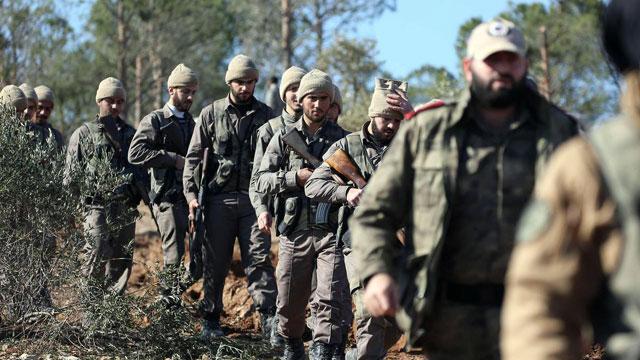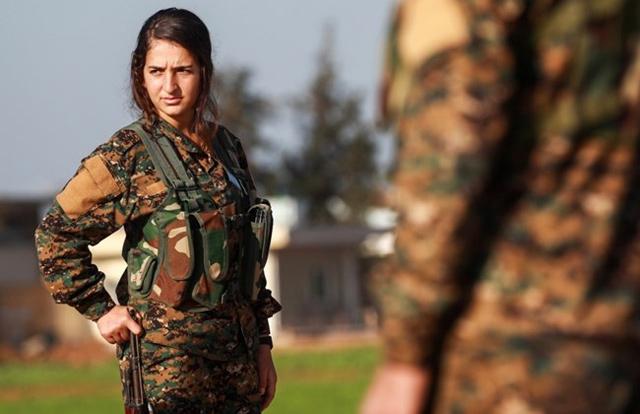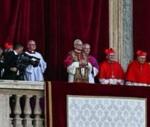You are here
Kurds: from 2011 protests to 2018 call for Assad support
By AFP - Feb 18,2019 - Last updated at Feb 18,2019

Turkish-backed Syrian rebels march on Mount Barsaya north of Azaz, on January 29, 2018, as the Turkish offensive against Kurdish forces in the Syrian border region of Afrin continues (AFP photo)
BEIRUT — US-backed Kurdish fighters have played a leading role in the defeat of the Daesh group in Syria but are themselves branded "terrorists" by neighbouring Turkey.
With the terrorists reduced to just a patch of territory, the Kurds fear being left to the mercy of Turkey once the final battle is over and US troops pull out.
After a top Kurdish official called on Monday on Europe not to abandon the Syrian Kurds and to help set up an international force to protect them from Turkey, here is a recap of their involvement in the eight-year conflict.
Join protests
On April 1, 2011, Kurds join for the first time the pro-reform and anti-regime demonstrations that had erupted in Syria in mid-March, calling for "freedom" and the right to citizenship.
Twenty per cent of Syria's Kurds — about 15 per cent of the population — had lost their citizenship in 1962 following a controversial census.
Naturalisation
On April 7, 2011, President Bashar Assad issues "a decree granting Syrian Arab citizenship to people registered as foreigners in Hasakeh province, SANA state news agency reports. It covers about 300,000 Kurds.
The next day there are protests in Kurdish areas of northern Syria demanding the abolition of emergency law and the release of prisoners. Several more protests are held, involving thousands of people, in following months.
Assassination
On October 7, 2011, prominent Kurdish opposition figure Meshaal Tamo is killed by masked gunmen in the north-eastern city of Qamishli.
Tamo was a member of the newly formed Syrian National Council opposition grouping, and had just been released after three-and-a-half years in prison for dissent.
His funeral turns into a mass rally with more than 50,000 demonstrators calling for the fall of Assad's regime. Security forces open fire on the crowd.
Army retreat
In June 2012, the rebel Free Syrian Army calls on the Kurds to join their uprising. But the Kurds, wary of the opposition, prefer to try to protect their regions from the violence.
In July, the Syrian army retreats from some Kurdish regions, provoking opposition suspicion of collusion with the regime.
Ankara accuses Damascus of handing over areas to Kurdish groups including the People's Protection Units (YPG), which it views as an extension of its own banned Kurdistan Workers' Party (PKK), which has waged a separatist insurgency.
Turkey sees the PKK and Syrian Kurdish fighters as "terrorists"; it has repeatedly threatened to attack Kurdish-held areas in Syria along its border.
Semi-autonomous region
On November 12, 2013, Kurdish groups in Syria announce the establishment of a semi-autonomous region divided into three zones, following victories against rebels.
US ally
In September 2014, the US-led coalition launches its first raids against the Daesh group in Syria which had captured large swathes in the north and east.
In October, Washington reveals that US officials had met Kurds from the Democratic Union Party as part of its strategy against Daesh.
At the start of 2015, Kurdish forces supported by US-led coalition strikes oust Daesh from Kobani on the Turkish border.
The Syrian Democratic Forces, an alliance of 25,000 Kurdish fighters and 5,000 Arabs, is created in October 2015. Dominated by the Kurdish YPG, it receives arms and air support from the United States.
In December 2017, Assad calls the US-backed Kurdish fighters "traitors".
Call for regime help
In January 2018, Turkey launches an operation to capture the Kurdish enclave of Afrin; by March it has pushed out the YPG with help from Syrian rebel groups.
On December 19, President Donald Trump announces the US will withdraw its troops from Syria. In response the YPG calls on Syrian government forces to deploy alongside its own fighters to counter the threat of a fresh Turkish offensive.
The Syrian army is deployed around Manbij, a key city about 30 kilometres south of the Turkish border.
Related Articles
Syrian regime forces and Kurdish militia fought separate battles with the Daesh terror group on Monday in a strategic area near the Iraqi and Turkish borders, a monitoring group said.
BEIRUT — Turkey's decision to send troops into Syria is a last-ditch bid to prevent the realisation of its worst nightmare: the creation of
BEIRUT — Syria’s Kurds, who have asked for regime help to face a threatened Turkish offensive, have seen their prospects of increased autono
















